Sweden
Factsheet
| ETHNIC MINORITIES: | |
|
Roma: |
0.46% |
| RELIGIONS: | |
|
Lutheran: Muslim: |
87% 4.9% |
| NET MIGRATION: | 265,649 |
| POP. GROWTH RATE: | 0.7% |
| GDP GROWTH: | +3.1% |
| GDP PER CAPITA: | 55,041 |
| UNEMPLOYMENT: | 8.0% |
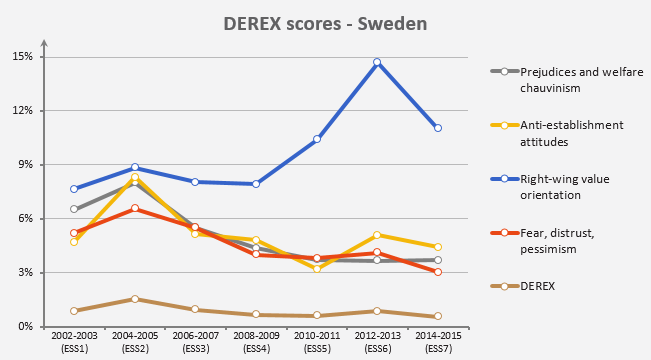
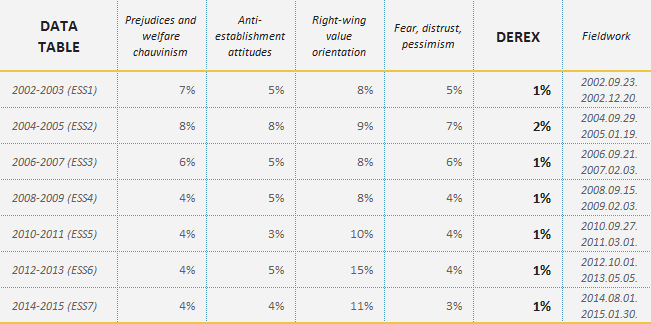
Sweden Democrats (Sverigedemokraterna, SD)

The Sweden Democrats (Sverigedemokraterna, SD) were founded in 1988, but only received the requisite number of votes to be represented in the Swedish Parliament in 2010, polling 5.7 per cent. While the group was initially accused of having Nazi ties and drawing inspiration from groups like the Front National, it pursued a strategy of moderation during the 1990s that widened its appeal and even persuaded a member of the Moderate Party to switch sides. Nevertheless the Swedish prime minister has refused to invite the Sweden Democrats to join the government making sure that the center-right does not become dependent on the polarizing agenda of the far-right for its political success. The Sweden Democrats view their 2010 victory as an opportunity to make their voice heard throughout the country; many Swedes were shocked by the victory, which has pushed discontent over immigration to the foreground of the public discourse. The Sweden Democrats contend that excessive immigration has crippled Swedish solidarity, straining economic and social relations among citizens. They claim that their slogan — ‘Keep Sweden Swedish’ — is not about racism but the rejection of multiculturalism. Contending that Sweden’s integration policy has failed, the Sweden Democrats advocate heavy restrictions on immigration and incentives for current immigrants to return to their home countries. They have expressed skepticism about the special minority rights granted to the indigenous Sami in northern Sweden. The group is broadly socially conservative, tending to oppose adoption rights for same-sex couples, though members have invoked the welfare of sexual minorities as a reason to resist increased ‘Islamization’. Prominent Swedish media outlets have banned the Sweden Democrats from advertising.
The party has managed to maintain sustained popular support; atthe 2014 EP election 9.8% of the electorate gaveits vote to the Swedish Democrats. This is a huge improvement on its 3.3% showing in the 2010 election. The party preparedfor the EP campaign under the auspices of the European Alliance for Freedom, created jointly by Vlaams Belang, Front National and Dutch PVV. A manifesto issued at its first press conference on December 11, 2013, the EAF identified the creation of regional, monetary, legislative and national sovereignty as the cornerstone of a future Europe. Recently, the leader of SD, Jimmie Åkesson, has been trying to steer the party to the political center by rejecting open racism, while the rejection of the European Union and demands for the renegotiation of Sweden's membership have been moved to the center of the party’s agenda.
Following the party having successfully given weight to its involvement in European Politics, it was also able to increase its number of mandates in the Swedish parliament, the Rikstag. The SD ended the September 2014 general election with 12.9% of all votes counted, winning 49 seats out of a 349 total and becoming the third largest party behind Social Democrats (31%) and the Moderate Party (23.3%). Opinion polls conducted at the beginning of 2016 put the party between 15-25% in terms of its number of supporters, which predicts that the SD could further extend its voter base relying on its anti-immigration rhetoric, with the potential of becoming one of two leading political groups in Sweden.
(Last update on 8. April, 2016)
SD on the Internet:
Sources:
- Jamie Bartlett et al.: “The New Face of Digital Populism.” Demos: London 2011, p. 108-109. Available online at http://www.demos.co.uk/files/Demos_OSIPOP_Book-web_03.pdf?1320601634
- Political Capital
European elections - May 25, 2014
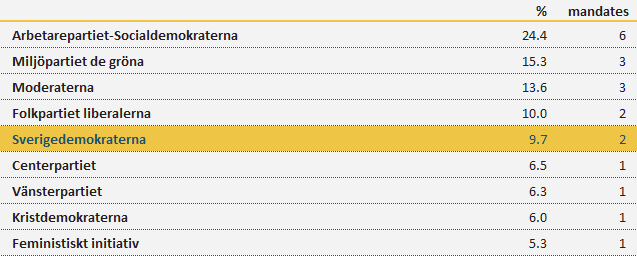

Parliamentary elections - September 19, 2010
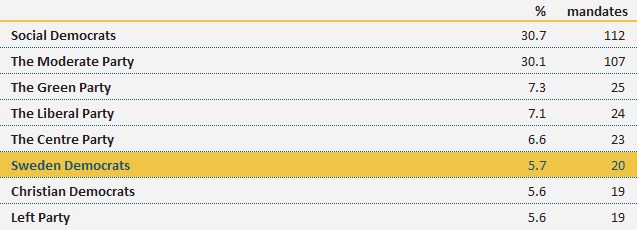

European Parliament elections - June 7, 2009
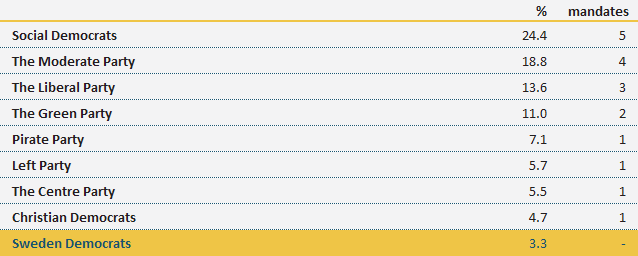

Parliamentary elections - September 17, 2006
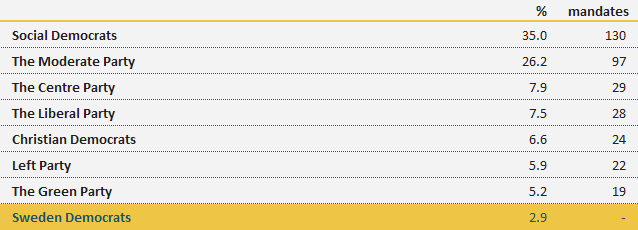
Our thematic websites
Political Capital's analyses and activities in English.
Research and advocacy programme focused on the role conspiracy theorising plays in shaping populist and radical politics.
Our project New electoral system in Hungary: watchdogging, advocacy and raising awareness focuses on the electoral reform in Hungary.
Our blog on political and societal extremism and conspiracy theories.
DEREX website is supported by










